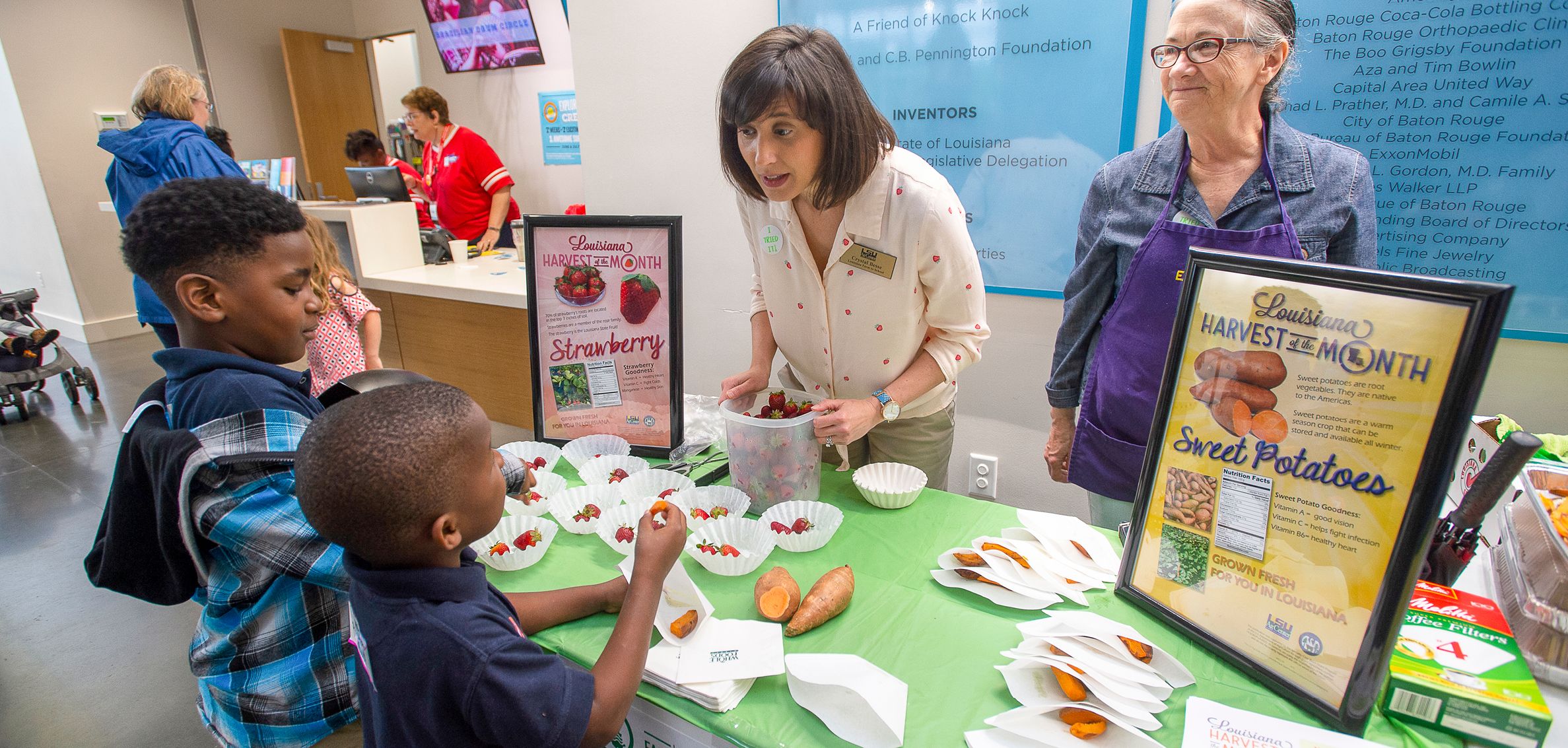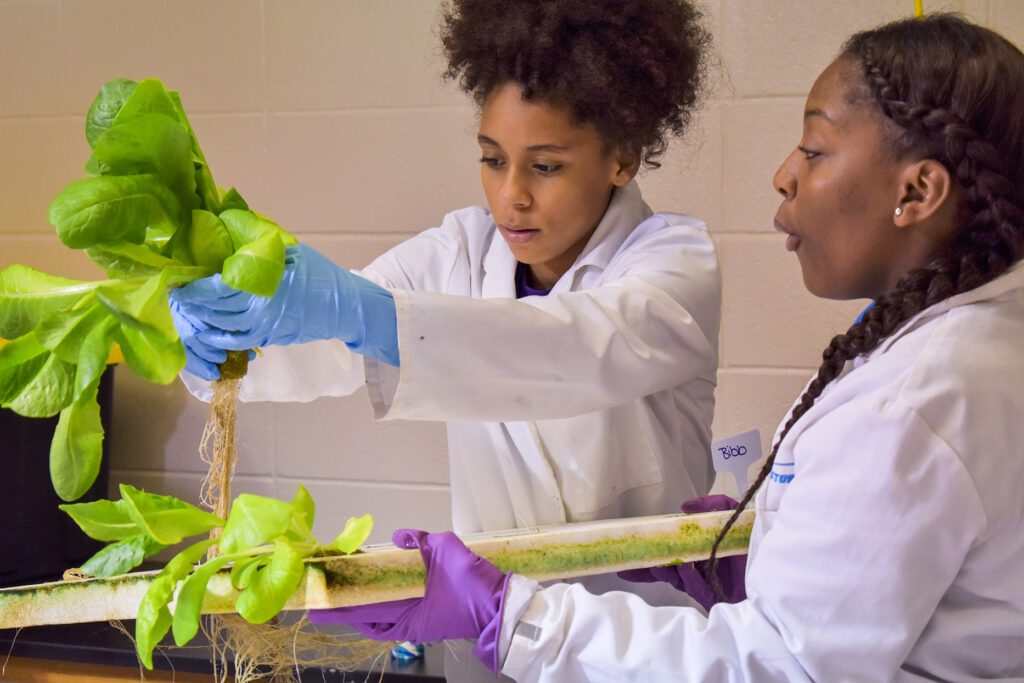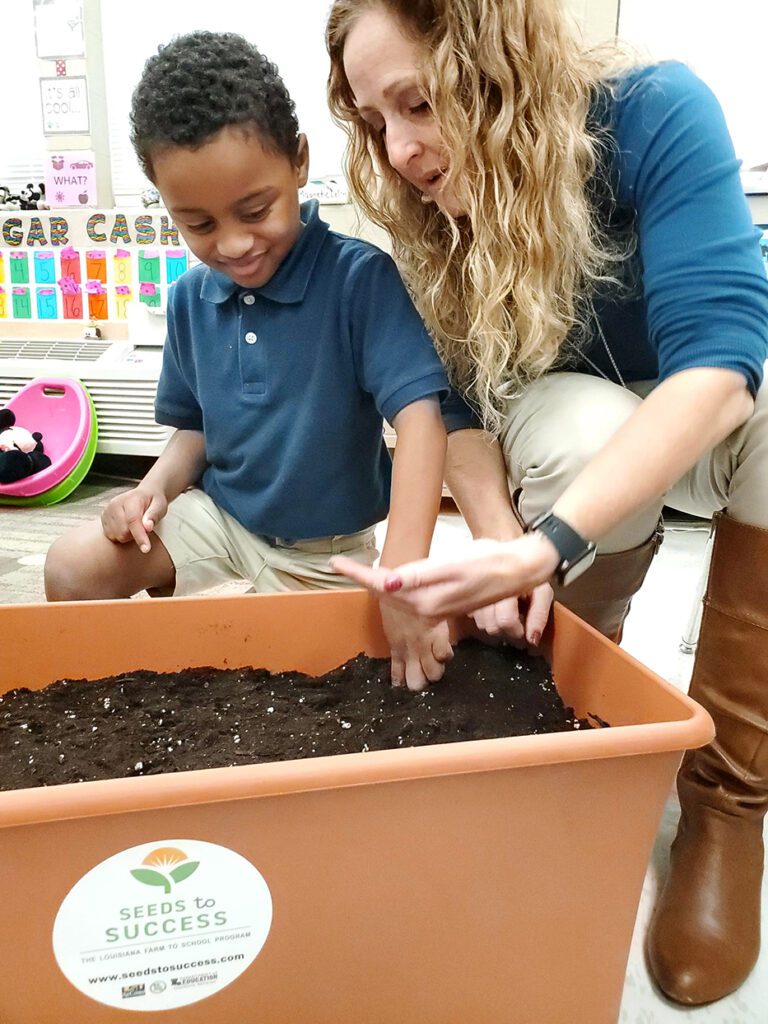
Seeds to Success brings hands-on harvesting into the classroom
When Romans encountered wild strawberries in the first century A.D., they likely thought little of the scrawny roadside snack: a tiny, flavorless bulb sharing a family tree—or in this case, a family shrub—with the versatile apple, heartier almond and far more beautiful rose. Only later did accidental hybridization result in the plant’s gastronomical glow-up, transforming the ugly duckling of the genus Fragaria into what would eventually be crowned the official state fruit of Louisiana.
For most of us working outside the realm of agriculture, that history lesson reads as a bit of trivia. But for students throughout the 64 parishes, it’s another lesson in a flourishing curriculum germinated by Seeds to Success, a Baton Rouge-founded, statewide venture educating K-12 students about the procurement, nutrition and gardening of healthy, local produce.
Originally christened as Louisiana Farm to School, the present-day Seeds to Success farm to school program grew to fruition alongside Governor John Bel Edwards’ 2016 signature on Act 404, which “require[d] the State Board of Elementary and Secondary Education to develop and implement a farm to school program to promote the use of locally grown and raised agricultural products in school nutrition programs.” With the help of the Louisiana Department of Education, the Louisiana Department of Agriculture and Forestry, and the LSU AgCenter, the two main branches of Seeds to Success—Seeding Louisiana and the Harvest of the Month program—encourage healthy eating not just as a personal achievement for young leaders of tomorrow, but as a lifestyle that supports farmers. Today, approximately 55% of Louisiana school districts participate in farm to school programming.

It all began when executive director Carl Motsenbocker, Slow Food BR co-founder and professor of horticulture and sustainable agriculture with LSU and LSU AgCenter, attended a farm to school conference in 2013. There, he discovered how the farm to table concept behind Slow Food would—and should—translate into the classrooms of Baton Rouge, where up to 22% of residents experience some degree of food insecurity. Motsenbocker penned a grant, and soon afterward, the Harvest of the Month program unfurled its first leaf at Dufrocq Elementary School.
“Slow Food maintained a school garden at Dufrocq, where we had implemented a program based on one seasonal menu item—kale, squash, broccoli or what have you. Students would learn about the crop, grow it and taste it,” says Motsenbocker. “That eventually drew the attention of the Department of Education, who wanted to lend support and help make it the statewide program it is today.”
As for the knowledge needed in order to grow these crops in the classroom, the Seeds to Success website provides nearly all of it, whether lesson plans and posters, career path ideas, or even a bank of recipes for taste-testing exercises, not to mention in-depth histories on the science and growing practices behind Louisiana crops. Teachers across the state also regularly ask questions or share their students’ progress on the program’s official Facebook page, which acts as a forum for connection and community support.

These lessons were first developed as part of Seeding Louisiana, says director Crystal Besse, who also ensures that the program’s “Seeds to Grow,” “Seeds to Sow” and “Seeds to Know” resources on gardening basics, growing guides and K-12 activities align with the state Department of Education’s Student Standards. “No matter what kind of teacher you are, we just want to bring hands-on gardening and nutrition activities into the curriculum. We want kids to engage with parents, and parents to engage with the community, and the community to engage with farmers. It’s a comprehensive program that has implications beyond the classroom.”
Besse also helps produce monthly 10- to 15-minute “Harvest” videos on LPB’s YouTube channel, promoting facts and growing tips for seasonal crops. In March, viewers can look forward to a video filmed in partnership with Baton Rouge-based Mushroom Maggie’s Farm, the first of what Besse hopes to be many more collaborations with local growers.
Since 2019, Seeds to Success has also promoted itself by sending free seed packets to every school in the state, but in the end, the results of growing and eating local foods speak for themselves, whether in the field or on the plate.
“The good news is that it’s so easy to learn how to grow these plants, and to make small substitutions in favor of local crops,” says Besse. “We’ve already heard so many anecdotes from school cafeteria workers and students about how different fresh sweet potatoes taste from canned potatoes, or how much nicer Louisiana satsumas and strawberries look compared to imported versions.”
According to Motsenbocker, Seeds to Success may even prove to be the first step toward generational change in Louisiana.
“My hope is when kids go to the grocery store or the farmers market with their parents, they have the interest and the information they need to make healthy, sustainable choices,” he says. “It’s about them being able to recognize something and say, ‘Hey, I tried that at school!’ and bringing that excitement home.”











